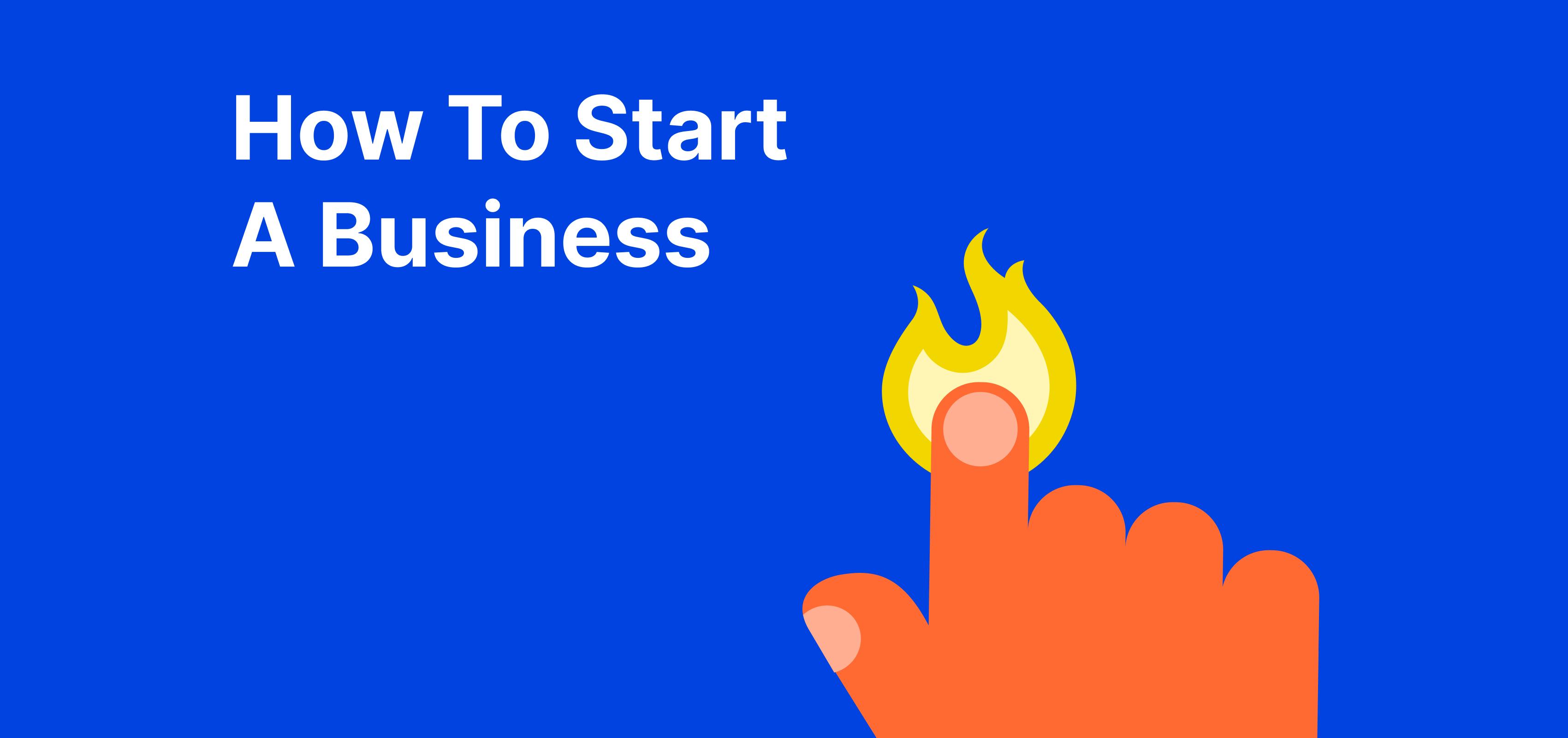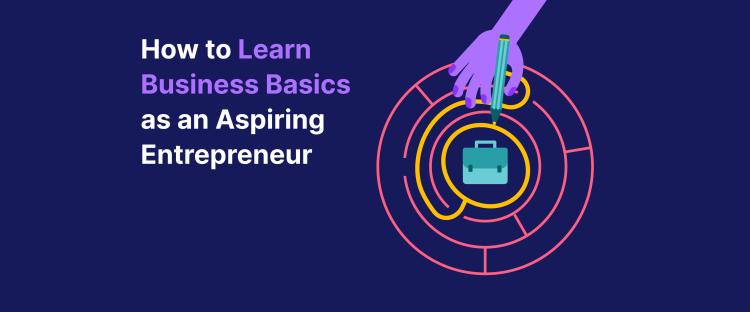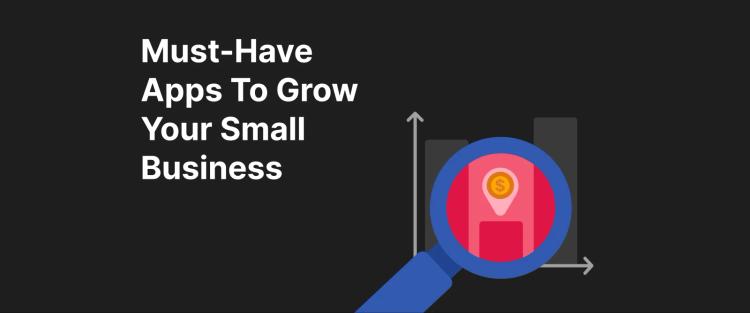How do people quit their jobs and make money running their own companies?
You see entrepreneurs posting about their online business on LinkedIn. Your friend registered an LLC last month. Someone from high school now has three employees. Meanwhile, you're googling "how to start a business" at midnight, reading conflicting advice from the SBA, random blogs, and that mentor who keeps saying "just start."
Starting a business isn't complicated — nobody explains which steps happen in what order. You need a step-by-step process: business finances, legal setup, and whether to hire employees now or wait. This guide covers what small business owners do to launch, including the gov requirements, financial decisions, and setup tasks that are performed in sequence.
Whether you're opening an online business or a local shop, this covers what happens before you open doors.
Learning how to start a business needs more than articles. Headway's library has 15-minute summaries of books by founders who built companies — covering business finances, hiring decisions, and growth strategies you can use this week. Daily insights you read between meetings.
📘 Download Headway and learn from people who have done this already!
Quick answer: How to start a business (Three important steps)
Pick the right business you can actually do, then write a business guide (business plan) covering finances, goals, and market research. Shows whether your idea makes money or just sounds good.
Register your business structure, get your business license, apply for an EIN, and open a business bank account. Separates personal money from company money. State tax rules differ — check yours.
Build your online store or website, develop a brand identity, then advertise through social media and networking. Launch small, fix problems, then scale up.
How to start a business in 10 simple steps (2026 edition)
1. Find your big idea

You cannot start a business without an idea. But finding that big idea can be challenging. Here are some questions to ask yourself when thinking about what sort of concept you want to go with:
Do you want to develop your own product?
Do you want it to be a full-time business venture or a side hustle?
Is there a particular industry you are interested in?
What are you passionate about?
What funding do you have?
Do you want to work from home?
What are your top skills?
What do others come to you for help with?
Are you planning to go it alone or partner with someone?
By reflecting on your answers to these questions, you should be able to narrow your focus. Once you have settled on a concept, ensure that it is something you would be good at, if it’s realistic, and whether you think it would be profitable.
Top tip: A great way to determine whether a business idea is viable is to research it on Google Trends.
2. Research your chosen product or service
Now that you have decided on a product or service you are excited about, it is time to double-check that it is a smart move. You might have a great idea, but you need to ensure that it will succeed as a business. Additionally, conducting research enables you to identify potential problems, understand the customer’s needs, and establish goals for your company. Here are a few factors you should research regarding your idea:
Market research: This involves collecting data about your potential market to determine if your idea is viable, typically through interviews, focus groups, and surveys. Market research can also inform you of what equipment you will need for the business, such as storage and computer software.
Market analysis: This involves studying the industry to which your idea falls.
Target market: Identify a target audience that resonates with your idea. It is vital to do this so that you know what sort of person you are catering to with your product or service. It helps with business decisions, can determine how you develop your product, and allows you to engage with potential customers.
Competition: It is crucial to understand the competition for your idea so that you can determine a unique selling proposition (USP).
Top tip: Consider conducting a strengths, weaknesses, opportunities, and threats (SWOT) analysis.
3. Write a business plan

A business plan is a document often used to secure funding for a business. However, whether or not you are seeking outside funding, a business plan is a great idea. This is because it helps address vital questions about the operation of your company, from its finances to its mission statement. It is a comprehensive document detailing your company and its short- and long-term strategies. Here are some top tips for writing a strong business plan:
understand your audience;
keep it concise and to the point;
ensure that the style, voice, and tone are consistent;
have a clear goal.
A business plan should also include the following:
description of the business;
data from market analysis;
structure and organization of the business;
the business mission and goals;
the products or services involved;
a background summary (research);
your marketing plan;
a financial plan (including startup costs);
an executive summary.
📘 Learn business basics while building your company — download Headway!
4. Source your products
Now that you have locked in your product and completed your business plan, it is time to consider making it a reality, whether you are manufacturing, sourcing, or selling your product.
Creating a product: If your product is handmade, you can produce it at home or in a rented workspace. Ensure that you check up on the legal requirements for a home-based company, as there are stringent rules and protocols.
Manufacturers: If you are manufacturing your product, you will probably need to find a manufacturing partner. A reputable manufacturer should have knowledge of your industry as well as the relevant packaging and labeling laws. Certain manufacturers can even advise you about the best product development practices.
Suppliers: If your business sells existing products, you must find a supplier or brand to source them from. Business models under this option include wholesale, dropshipping, or print-on-demand. Determine the most suitable option for your company.
This step can also help determine your shipping strategy. To establish this, you first need to determine how you will handle order fulfillment. Many new company owners package and ship orders one at a time (unless you opt for dropshipping or print-on-demand). It can be a great way to get to grips with all business aspects. As the company expands, you may wish to outsource this to a third-party company and use a fulfillment service.
5. Develop your brand
The importance of your brand cannot be understated. It will be the deciding factor in whether a customer will decide to purchase from you. This is why you must develop your brand identity and strategy, as it allows you to tell a story, build credibility and trust, and go beyond a name and logo. When thinking about building your brand, address the following:
who you are and what product or service you provide;
what matters to you;
what sort of colors and designs complement your product or service;
what your company represents (think about the mission statement and values of the brand);
your USP and what sets you apart;
how you want customers to respond to your brand;
the photographs of your product or service (this is especially important for e-commerce brands);
the visual identity of your brand, such as the logo, name, and overall style);
the packaging of your product;
the voice of your brand;
the story behind your brand.
Top tip: Ensure your brand name has not already been chosen, and the domain and social handles are available. Choosing a name before writing the business plan may seem like a better idea, but the planning process often helps generate great business name ideas.
6. Create your website
Now that you have determined your brand identity and strategy, it's time to create a website that presents your brand to the outside world. While it may sound like a daunting task, numerous website builders and tools are available to help set up, design, and customize a website. Creating a website may seem like it should occur further down the road, but it is a great way to soft-launch your website (and brand) to the world. This allows you to test your brand, receive customer feedback, and make alterations before the official launch.
📘 Read what entrepreneurs read, faster — try Headway today!
7. Get your business registered

Depending on your location, there are different rules and regulations governing manufacturing, marketing, and shipping. Therefore, ensure that you conduct proper research to ensure you are following all the necessary legal steps. Certain countries do not require you to register the business to start officially, so do double-check.
Firstly, you should decide on the structure of your business. Speaking to an expert, such as an accountant, to ensure you choose the correct option is recommended. Below are several types of business structures that you should consider:
Limited Liability Company (LLC): This option limits your personal liability and can be owned by one or more companies or people, and must have a registered agent.
Limited Liability Partnership (LLP): This is similar to an LLC but is typically used by licensed professionals, such as accountants. This option must have a partnership agreement.
Sole proprietorship: If you are a one-person business, you may wish to consider this type. The business and owners are seen as the same (for tax and legal reasons). The owner takes on full liability for the business.
Doing Business As (DBA): This is when you operate under a name different from your company’s legal name.
Corporation: Similar to an LLC, this limits your personal liability financially. Different types of corporation options exist, such as C-corporations, S-corporations, or B-corporations.
Top tip: Corporations, particularly C corporations, are well-suited for new businesses seeking funding from venture capitalists (VCs).
During this step, you should also consider getting business insurance. Many scenarios, such as health issues, natural disasters, or lawsuits, could bring you trouble. Consider the different types of business insurance to determine what is applicable for you, such as:
professional liability insurance;
product liability insurance;
business interruption insurance;
workers' comp insurance;
commercial property insurance;
personal liability insurance (may not be needed if your business structure means you are not personally liable).
Further down the road, you may wish to consider other protections, such as registering a trademark, offering health insurance to employees, and writing a list of terms and conditions.
8. Take care of finances
Maintaining control over your finances is crucial. By managing your money, you can be confident that you are not overspending and have help if needed. An excellent first step is to open a company bank account, as it separates your company and personal finances. When considering the right bank, ask yourself the following:
What is the bank’s reputation?
What is the bank’s fee structure?
Does it have a straightforward loan process?
Does it have expert advice in your industry?
You should already have a financial plan (included in your business plan), and now is the time to use it. Below are some financial statements that should be a part of your finances:
Income statements: This explains how much money your business earns and is typically prepared on a monthly, quarterly, or annual basis.
Balance sheets: This details the company's assets, shareholder equity, and liabilities, and explains how much the business is worth once these have been accounted for.
Cash flow statements (CFS): This explains the cash transactions (both in and out) in a certain period.
Additionally, this step involves managing your taxes. Depending on your company structure, what tax you need to pay will vary, so ensure you read up thoroughly. You should also determine whether you need to charge tax on your products or services. An accountant can help you with this step. Remember that you can also use small business accounting software to further assist you.
Top tip: Keep business records organized and help meet tax obligations.
9. Advertise your business
What is the point in having a business if you have no customers or interest? This is where advertising comes in and where you can market your company. Here are a few suggestions:
Social media: Establish a social media presence to showcase your brand identity, engage with customers, and potentially sell your products.
Emails and newsletters: This is a great and cost-effective way to stay in touch with your customers.
Networking: Attend virtual or in-person events to gain a deeper understanding of your industry and establish valuable connections.
Online directories: List your company on popular sites like Google Business Profile, Yelp, and Facebook to expand your customer reach.
Organic marketing: This refers to free marketing techniques. For instance, you could run giveaways, offer discount codes, or even take pre-orders.
📘 Grow your business knowledge on the go — try Headway!
10. Grow your business

It is now time to think about expansion. You may wish to keep your business small and humble, but here are some ideas if you want to grow your business:
Crowdfunding: Raising funds from the public. As your business scales, tools like Eqvista help you manage ownership and equity seamlessly through a clear, professional cap table.
Business grants or loans: Consult with a financial advisor to determine the best choice.
Grow your team: Consider hiring additional employees to support the business's operations.
Consider selling overseas: This lets you expand into other markets and find new audiences.
Vendors: Consider whether you want third-party help running the business, such as a credit card processing provider or an accountant.
Top tip: To ensure you have comprehensive business knowledge, check out our blog post on books every business owner should read.
Keep learning about entrepreneurship with Headway!
Learning how to start a business covers business registration, getting an IRS EIN, filing with the Small Business Administration, sorting business taxes, and setting pricing. Self-employed means federal tax forms. Nonprofit status needs different paperwork. The setup takes months before you open.
Running a business leaves zero time for books on entrepreneurship. Headway offers summaries of business books into 15-minute formats (audio and text) that you can finish between meetings. There, the business taxes are explained, pricing strategies are broken down, and growth tactics are discussed. Read during lunch instead of stacking unread books on your desk. Spaced repetition drills key concepts into memory for months to come!
📘Download Headway and keep learning without adding hours to your schedule.
FAQs about how to start a business
What is the easiest business to start?
The easiest business to start is one that requires little upfront investment and uses skills you already have. Examples include freelance writing, online tutoring, digital marketing, or selling handmade products online. These businesses are low-risk, flexible, and can be launched quickly with minimal tools or specialized equipment.
What business can I do from home?
You can run many successful businesses from home, such as freelance design, virtual assistance, coaching, content creation, dropshipping, or selling digital products. These models rely mostly on internet access and creativity rather than physical inventory, making them cost-effective and ideal for balancing work with personal life.
How do I start a beginner business?
To start a beginner business, identify a problem you can solve with your skills or interests. Research your target audience, create a simple business plan, and test your idea on a small scale. Set up basic online presence, handle legal basics, and focus on providing consistent value to early customers.
What legal structure and tax paperwork do I need to own my own business?
File your legal structure with the Secretary of State first. Get an employer identification number (also called a tax ID number) from the IRS for income tax filing. Register for sales tax if selling products. Set up bookkeeping to track revenue. Get workers' compensation insurance when hiring. Social security self-employment tax applies. Each piece matters for staying legal.
How do I get small business loans and handle financial optimization?
Small business loans come from banks, credit unions, or online lenders who check your credit and plan. Strong bookkeeping helps with approval. After funding, optimization means tracking income tax quarterly, separating accounts, and monitoring cash flow. Workers' compensation costs factor into budgets too. A financial organization prevents problems when filing or dealing with lenders later.







